#Access Control System Qatar
Explore tagged Tumblr posts
Text

Access Control System in Qatar
We offer access control system in Qatar for businesses of all sizes. We provide biometric, card-based, keypad and cloud-based options to manage entry points and protect sensitive areas.
#access control qatar#access control system qatar#access control system doha#access control doha#digital forge#digital marketing agency#information technology company#It company qatar#it company doha
0 notes
Text
Must-Have Challenges : Operation & Maintenance in Qatar, Doha
We are essential to maintaining the smooth operation and ongoing optimization of vital infrastructure components about Operation & Maintenance Services in Qatar, Operation & Maintenance Services in Doha. It encompasses the day-to-day activities, regular maintenance, and methodical substitutions required to guarantee that an asset keeps providing the best possible services for the duration of its anticipated life. Because GBDG was founded as a specialized O&M service provider, its expertise in O&M services translates naturally into tunnel-related projects. Since its beginning, the voyage has inevitably changed, and GBDG is proud of its part in providing, installing, and commissioning essential infrastructural components.

Operation & Maintenance Services in Qatar, Operation & Maintenance Services in Doha
#Operation & Maintenance Services in Qatar#Operation & Maintenance Services in Doha#Intelligent Transportation Systems in Qatar#Intelligent Transportation Systems in Doha#Road Network SurveysOperations and Maintenance#Access Control System Qatar#Control Room Operations#ROMDAS#Road Surveys
0 notes
Text
#accesscontrolsystemuae #accesscontrolsystemsaudiarabia #accesscontrolsystemriyadh #accesscontrolsystemsupplier #accesscontrolsupplieruae #accesscontrolsupplieruae #accesscontrolsupplierinabudhabi #accesscontrols
Access Control System Dubai
Access Control System UAE
Access Control Supplier in Dubai
Access Control Systems
Access Control System in Sharjah
Access Control With Face recognization
Access Control Systems Saudi Arabia
Access Control System Riyadh
Access Control System Qatar
Access Control System Abu Dhabi
Access Control Solutions UAE
Access Control Systems in Alain
#access control system abu dhabi#access control system saudi arabia#access control system in saudi arabia#access control system supplier in abu dhabi#access control system supplier in sharjah#access control system supplier in ajman#access control system supplier alain#access control system supplier oman#access control system supplier qatar#access control system supplier saudi arabia#access control system supplier in saudi arabia#access control system with facial#access control system with facial recognitions#access control system uae#access control systems dubai#access control systems abu dhabi#access control system supplier in uae#access control supplier in sharjah
0 notes
Text
youtube
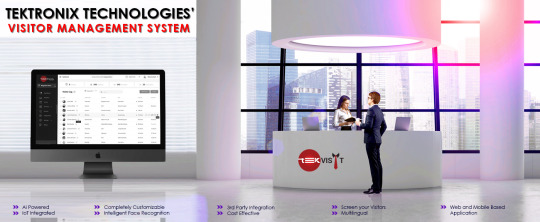
VMS With Facial recognition technology offers a robust layer of security by accurately identifying individuals based on their unique facial features. Unlike traditional methods such as ID cards or manual verification, facial recognition eliminates the risk of forged or stolen credentials. By cross-referencing visitor faces with a database of known individuals, security personnel can quickly identify potential threats and take necessary precautions.
Visitor Managemnet System
Visitor Registration Software
Visitor Access Control System
Visitor Management Software UAE
Visitor Access Control Systems Abu Dhabi
Visitor Management With Face recognition
#visitor management system in bur dubai#visitor registration software abu dhabi#visitor registration system in alain#visitor access control system in alain#visitor registration system in ajman#visitor management system in qatar#visitor management sytsem in qator#visitor access control systems in saudi arabia#visitor registration software#visitor management system in alain#visitor management system for office#visitor management system for office uae#visitor management system for office abu dhabi#visitor management system for office in sharjah#visitor management system for office oman#visitor management system for office qatar#visitor management system for office alain#visitor management system for schools#visitor management system for schools uae#visitor management system for schools abu dhabi#visitor management system for schools in ajman#visitor management system for schools oman#visitor management system for schools qatar#visitor management system for schools bur dubai#Youtube
0 notes
Text
#access control system#access control system dubai#access control system Abu Dhabi#access control system supplier#access control system supplier Dubai#access control system supplier Abu Dhabi#access control system suppliers in uae#access control system suppliers in qatar#door access control system#door access control system Dubai#door access control system Abu Dhabi#door access control system UAE#biometric access control system dubai#biometric access control system Abu Dhabi#biometric access control system Sharjah#biometric access control system Ajman#biometric access control system#access control system solutions#access control system solutions Dubai#access control system solutions Abu Dhabi#access control system solutions UAE
0 notes
Text
The aviation industry is “failing dramatically” in its efforts to tackle its role in the climate crisis, according to a newly formed group of aviation professionals.
They say they are torn between their passion for flying and their concern for the planet and are calling for a fundamental transition of the industry, including controlling flight numbers.
The group, Call Aviation to Action, says the industry is overly optimistic about emissions-cutting technology and trapped in a business model that demands ever-growing flight numbers. The lack of significant climate action from the industry risks it being destroyed, the group says, as heavy regulation from outside will become necessary as the climate crisis intensifies.
Due to their international nature, carbon dioxide emissions from aviation are excluded from the national plans that countries submit to the UN’s climate body. Instead, the UN’s aviation body, the International Civil Aviation Organization (ICAO), is tasked with tackling the planet-heating gases.
Bockstael said: “My view is ICAO have been failing dramatically on that responsibility, because the only thing it came up with after eight years of discussion is the Corsia scheme, which is nothing more than carbon offsets for the growth of aviation above a certain threshold, exporting your problem to another industry.” The scheme has been criticised as “unambitious and problematic” and has yet to require any airline to use a carbon credit.
He said: “If we do not act, by 2050 aviation emissions will be about a quarter of all human-caused emissions – that will be really a very shameful position.
The Guardian has previously been contacted by numerous aviation professionals concerned about the climate crisis but who felt unable to speak publicly.
Flying causes more CO2 emissions than any other form of transport per mile and is dominated by rich passengers, with 1% of the world’s population responsible for 50% of aviation emissions. The industry’s climate plans are rated “critically insufficient” by Climate Action Tracker.
ICAO forecasts a doubling of passenger numbers by 2042, and the industry argues that more efficient aircraft, sustainable fuels and Corsia can control CO2 emissions. The ICAO has been accused of having been captured by the industry, the Guardian reported in February.
Independent experts say the feasible scale of measures to cut aviation emissions is extremely unlikely to compensate for such a doubling in traffic, with, for example, fuel-efficiency improvements now stalling. The CEO of Qatar Airways called the airline industry’s emissions goals a “PR exercise” in 2023.
The Call Aviation to Action group said the industry should set targets for absolute emissions cuts in line with science-based CO2 budgets and stop “lobbying against climate policies”. The industry should also acknowledge that managing global demand for flights in a fair way is part of the solution, it said.
Bockstael said the cost of emissions-cutting technologies would increase the price of flying but that additional measures, such as flight or carbon taxes, could be needed to keep passenger numbers at sustainable levels. Such constraints on demand must be fair, he said, offering equitable access to flying in developing countries and addressing heavy frequent flyers in rich nations.
Finlay Asher, an aerospace engineer and member of Safe Landing, said: “As an engineer, what really excites me is that the Call Aviation to Action proposals would lead to a new golden age of innovation. Our industry is in need of an upgrade: new aircraft designs, new forms of zero-carbon power and new airport layouts to support these. The research, development and operation of this new air transport system will not only create more jobs but also make flying greener, cleaner, quieter and more accessible to society.”
15 notes
·
View notes
Text
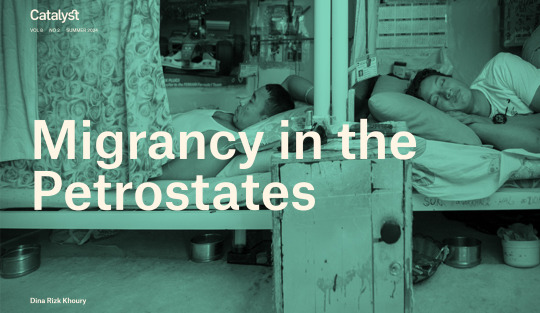
CATALYST JOURNAL
The Gulf states are transit states because migrants constitute a majority of their populations. The politics of labor control is central to the organization of these states and to the predominance of their political and capitalist classes. The contradiction of Gulf labor politics lies in the autocratic nature of rule based on nonmarket forms of labor control and the continuous demand of the market for a willing labor force.
“When I was coming here [Abu Dhabi], I was asked ten types of questions [by Indian emigration officials] and when non-Muslims went through immigration, they & nbsp;. . . just stamped [the passports] and let them go. This is the reason that Muslims tend to go abroad. We don’t get opportunity there [in India].”1
“It’s just like when the Europeans transported and sold Africans into slavery in America. What happened to the Africans then, happens to us now. We are transported here, the company sells us, commands us. There is no choice. In Nepal, we changed from a kingdom to a republic. If we could take action, if we could organize a strike, we could change this country.”2
During the first decade of the twenty-first century, Sheikh Mohammed al-Maktoum, the self-styled “CEO of Dubai” and its ruler, initiated a construction boom that would turn Dubai into the “city of the future,” a testament to its leadership of a neoliberal Gulf and a model to be emulated elsewhere. As the primary owner of much of Dubai’s real estate and the head of a conglomerate of companies bound to his new vision, Sheikh Mohammed turned Dubai into a node for global finance capital, trade, and consumerism.3 Within a few years, Dubai’s population of migrants, most of them workers, amounted to close to 90 percent of its population. Qatar was soon to follow when, in 2010, it won the right to host the 2022 FIFA World Cup. Hundreds of billions of dollars were invested in twelve football stadiums, highways, train stations, hotels, and entertainment facilities. Hundreds of thousands of workers rotated in and out of Qatar over twelve years to build and maintain the social and auxiliary economic infrastructure these investments required. By 2017, migrants made up 95 percent of Qatar’s labor force and 89 percent of its population. While the United Arab Emirates (UAE) and Qatar have the highest proportions of migrants to citizens, in all other countries of the Gulf Cooperation Council (GCC) except for Saudi Arabia, migrants make up more than half of the population, accounting for thirty million people.4
The Gulf states are transit states, according to political economist Adam Hanieh. They are dependent on the employment of migrants who have no hope of obtaining citizenship because of restrictive laws established in the 1930s.5 Access to citizenship is the most important factor that shapes the rights of migrants. Migrants’ permission to work and live in the country is regulated by a kafala, sponsored by their employers (usually citizens) and regulated by the state, which sets limits to their stay and restricts their ability to change jobs and leave the country. It ensures that migrants, laborers and otherwise, remain transitory residents, excluded from citizenship and deprived of the ability to remain in the country. Abuse of labor under the kafala system is common. It includes restricting the ability of workers to change jobs if their employers do not fulfill their promises. Should the migrants leave their jobs, they become illegal residents. Their very illegality makes them vulnerable to further abuse. Employers often do not pay wages on time or withhold them.6 Wage theft is one of the major complaints that migrants have about their working conditions.7 Migrant workers have no political rights to organize in their own interest because Gulf countries have labor laws that are confined to their own citizens. It is left to international organizations to intervene. These organizations frame workers’ rights as human rather than political rights. As a result, their interventions are dependent on the willingness of the Gulf states to implement them.
The International Labour Organization, Human Rights Watch, and other organizations have turned their attention to the lack of protection and rights of migrant laborers and have succeeded in mitigating some of the abuses. These attempts do not account for the structures that have historically linked capital accumulation by oil companies and the petrostates of the independent Gulf with the regional and global networks and companies that recruit and manage labor. In addition, for the ruling elite in countries so dependent on hydrocarbon and its derivates, finding an acquiescent and disposable labor force is critical for maintaining production, building alliances, and sustaining a class of national capitalists wedded to the perpetuation of labor control.8 Oil companies and the rulers of the GCC states learned this lesson after a series of labor strikes by local migrant Pakistani, Indian, and Arab workers — many inspired by the anti-colonial struggles in the region — threatened to undermine what they termed the “stability” of the relations between labor, capital, and the state.9
The Political Economy of Labor in the Gulf
The processes that inform labor recruitment, management, and control in the Gulf have much in common with the attempts by other states and corporations in capitalist economies to manage labor. We can only look at the difficulties workers at global corporations like Amazon and Starbucks have in unionizing and the outsourcing by Western corporations of most clothing manufacture to Asian countries to understand how global capital, supported by states, searches for politically acquiescent cheap labor. Unlike other capitalist economies, however, the politics of labor in the Gulf plays an outsize role because of the constant need for a supply of overseas labor and the size of the migrant population. As a result, the question of how to deal with migrant workers is central to the organization of the state and to the predominance of a Gulf elite and capitalist class whose ethnicity gives it rights of citizenship and class dominance. In her study of the labor organization of construction workers in Dubai, Michelle Buckley finds that the central contradiction is the hybrid nature of the form of neoliberal capitalism that governs workers’ lives. The autocratic nature of rule in the Gulf states based on nonmarket forms of labor control, exemplified in the kafala system on the one hand and the continuous market demands by corporations for willing labor on the other, allows for a limited range of political action by workers in the region.10
The politics of labor in the Gulf is part of larger historical processes of the expansion of capitalism and empire and the regulation of flows of labor that began in the nineteenth century in the Indian Ocean world, of which the Gulf constituted a critical node. Much of the labor practices and the administrative and legal structures that have been set to regulate labor migration have roots in British colonial administrative laws deriving from its rule in India. The question of origin is important in drawing attention to the fact that the labor regimes that have historically developed in the Gulf are regional adaptations intended to control labor migration, such as indenture, contract labor, and free illegal labor, that have been critical to the growth of global capital in its various iterations. Despite such origins, the neoliberal politics of labor migration are not merely reproductions of old modes of labor control from the capitalism that shaped the advent of empire in the Gulf and the Indian Ocean.
The current practices of labor control do not trace their lineages in slavery, despite the relatively recent (mid-twentieth-century) abolition of slavery in the Gulf. Nor do modern forms of recruitment and regulation of labor bespeak a form of bondage like indenture, although the Indian government has adopted the logic and language of indenture regulation in early twentieth-century British India to regulate the flow of migrants from its country.11 The laborers who flock to the Gulf do so voluntarily as free citizens of national states and are motivated by a variety of reasons, both economic and social. Neoliberal capitalism, according to anthropologist of labor Andrea Wright, disarticulates the social from the economic by framing migrant workers simply as economic actors in a system of accumulation. Migrants’ social networks and family obligations and their dreams of social mobility inform their decision to migrate.12 The GCC and the sending countries view labor as a commodity that can be sold according to market mechanisms. In the words of Filippo and Caroline Osella, the “universalizing discourse of neoliberalism — the dream of self-regulating markets disembedded from social, cultural, or political straitjackets — is at its very heart utterly implicated in the production of practices — central to its global working — that differentiate and advantage players on the basis of anything but purely economic criteria.”13 Using the term “bondage” as a shorthand for labor controls in the Gulf might be a useful discursive tack for labor activists, but it obfuscates the very different structural factors that shape migration and work in the twenty-first century, and it reduces workers to victims incapable of political action without the intervention of international human rights organizations.
In what follows, I address two such structural factors: the complex and commodified forms of kafala that furnish the legal and economic infrastructures that regulate migrants’ lives, and the strategies that Gulf states and companies develop to recruit, enclose, and divide workers along racial/ethnic, gender, and skill/class lines. Despite what appear to be insurmountable obstacles to labor organization, migrant workers have developed several strategies to demand their rights. I draw on the work of scholars of labor activism to conclude with some thoughts on the limits and possibilities of workers’ actions.
(Continue Reading)
#politics#the left#dubai#uae#gulf states#slavery#oppression#capitalism#catalyst#catalyst journal#jacobin magazine#jacobin
8 notes
·
View notes
Text
🔅Mon morning - ISRAEL REALTIME - Connecting to Israel in Real Time
🔻Today’s peaceful attempts to kill the Jews..
Suicide Drones - Iraqi Shia Militias - INTERCEPTED by Jordan x 2
Suicide Drone - at Eilat - MISSED, source unclear, Houthis or Iraqi Shia Militias
Rockets - Hamas - at Mefalsim
The pro-Iranian militias in Iraq took responsibility for launching drones towards the "air force base in the Golan Heights”.
▪️A HERO SOLDIER HAS FALLEN.. Daniel Peretz, 22, of Yad Binyamin. May his family be comforted among the mourners of Zion and Jerusalem, and may G-d avenge his blood!
▪️GAZA - HOSPITAL.. The IDF has been operating for hours at Shifa Hospital following information senior Hamas operatives operating from it. During the night there was an exchange of fire. This hospital was the previous site of a major battle, tunnel discovery and international condemnation for Israel going into ‘a place of healing’… until signs of hostages were found there. 80 captured on the spot, in an action that has been going on for five hours.
The IDF says it has (re)established control over Gaza City's Shifa Hospital, and is calling on Hamas members inside to come out and surrender.
The IDF says that amid gun battles at the hospital premises, several Hamas gunmen were killed and wounded. One IDF soldier has been lightly wounded.
▪️GAZA BATTLES.. overnight IDF attacked Hamas targets from the air and artillery in western Khan Yunis, and in the Deir al-Balah area of the Gaza Strip. Reported that Deir al-Balah has witnessed air force attacks since the morning hours and that there is enormous damage, and dozens of wounded and dead in the area.
There are also reports of an exchange of fire going on between our forces and terrorists in the area of the town of al-Mugarqa north of the Nusirat camp.
▪️ISRAEL POLITICS.. interesting statement from United Torah Judaism MK Gafni, “we would have withdrawn from the coalition due to the 'new horizon' issue, but the instruction was one of the great teachings of the Torah that DURING WAR NOT TO CREATE NEW PROBLEMS.”
▪️UNRWA PROTESTS.. Israeli protestors have been protesting in front of UNRWA offices in Jerusalem, demanding the organization be declared a terrorist organization and banned from Israel.
▪️HOSTAGE CEASEFIRE DEAL LEAKS.. Hamas demands that were discussed in the last day by the Israeli top brass:
1. Russia and Turkey's to guarantee the deal - Israel refuses.
2. The release of all those released from the Shalit deal who were arrested again - Israel is ready to release some of them.
3. Hamas claims: We will be able to commit to the number of hostages we can release - only after the first week of the ceasefire. That is, only after the deal is closed will Israel know exactly how many hostages will be released.
The Israeli negotiation delegation has been authorized and left for Qatar.
▪️NIGER (the African country) ACCUSED OF RELEASING URANIUM TO IRAN.. Wall Street Journal: The military junta in Niger decided this weekend to stop the political-security cooperation with the US as part of the fight against terrorism. This was after an American delegation raised last week the suspicion that Niger had given Iran access to its uranium stockpile. The US fears that this could be used by Iran in its military nuclear program.
▪️GOLAN COUNCIL DOWN DUE TO CYBER ATTACK.. the Golan Council announces their computer systems and site are down due to cyber attacks - intentionally shut off to prevent being taken over. They are working to manage the situation. The security hotline continues to function.
17 notes
·
View notes
Text
Custom Security Cabins in Qatar: Tailored Solutions for Modern Security Needs
In a rapidly evolving world where safety and efficiency are top priorities, security infrastructure must keep pace with modern demands. In Qatar, a country renowned for its infrastructural growth and booming sectors such as construction, hospitality, and logistics, the demand for Custom Security Cabins is steadily rising. These purpose-built cabins are no longer generic boxes—they are highly specialized units, designed to meet specific environmental, functional, and operational requirements.
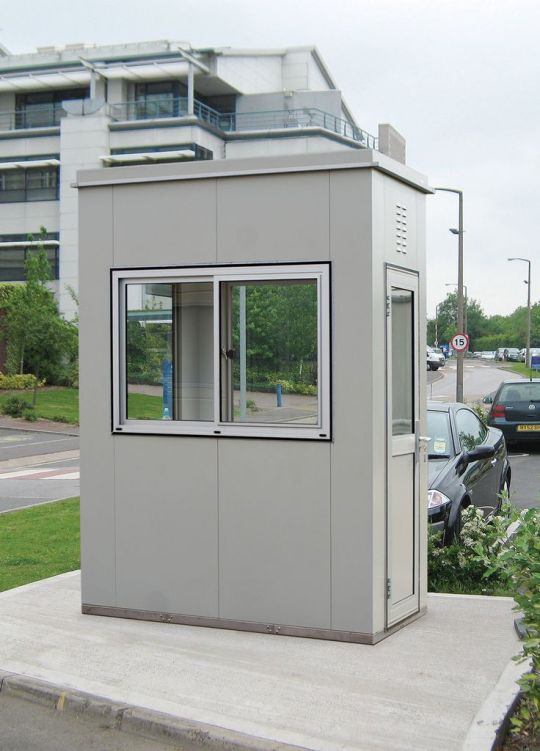
What Are Custom Security Cabins?
Custom Security Cabins are prefabricated structures that serve as on-site stations for security personnel. Unlike standard models, these cabins can be tailored in terms of size, layout, interior features, materials, and technology. Whether it’s a compact booth for a residential complex or a technologically advanced control cabin for an industrial zone, customization ensures that every security need is met with precision.
Why Qatar is Embracing Custom Solutions
Qatar’s ambitious urban planning and development strategies have significantly expanded infrastructure across the country. Mega projects like Lusail City, FIFA World Cup stadiums, and logistics hubs have elevated the importance of integrated security systems. Here’s why custom cabins are becoming the go-to choice:
Climate Adaptability Qatar's desert climate can be extremely harsh. Custom cabins can be built with thermal insulation, reflective coatings, and air conditioning systems to withstand intense heat, making them ideal for year-round usage.
Enhanced Durability These cabins are made using high-quality materials such as steel, aluminum composite panels, and weather-resistant coatings. This ensures a longer lifespan, even in demanding outdoor environments.
Modular Flexibility Whether you need a single security station or a multi-room setup with toilets, storage, or surveillance hubs, modular design makes it easy to expand or reconfigure units based on evolving needs.
Aesthetic Integration For locations such as embassies, luxury villas, hotels, or commercial centers, maintaining architectural harmony is important. Custom cabins can be styled to complement existing infrastructure, both in color and design.
Technological Integration Modern cabins can be equipped with CCTV systems, biometric scanners, intercoms, solar panels, and backup power sources—making them mini command centers.
Common Use Cases in Qatar
Construction Sites: Customized cabins serve as checkpoints and command posts to monitor workforce and materials, ensuring safety compliance.
Corporate Offices and Malls: Stylish and secure booths provide controlled access while blending into corporate aesthetics.
Events and Stadiums: Mobile, easily deployable security booths help manage large crowds at high-profile events and sports venues.
Residential Compounds: Security personnel stationed at entry/exit points in customized cabins ensure 24/7 vigilance and community safety.
Advantages Over Traditional Cabins
FeatureTraditional CabinsCustom CabinsSize & LayoutFixedFlexibleMaterialBasicHigh-grade, insulatedAppearanceGenericStylized to match siteTech IntegrationLimitedAdvancedCost EfficiencyShort-termLong-term durability & ROI
Choosing the Right Supplier in Qatar
When investing in custom security cabins, it’s essential to choose a reputable supplier in Qatar. Look for companies that offer:
Local fabrication and installation support
Compliance with safety and fire regulations
After-sales service and maintenance
Custom design consultation
Fast delivery timelines
Environmental Responsibility
Qatar’s move toward sustainability under its National Vision 2030 also influences the design of modern infrastructure. Many custom cabins today are constructed using eco-friendly materials and incorporate energy-efficient features like solar lighting, LED systems, and low-emission coatings. This not only reduces operational costs but also contributes to a greener environment.
Final Thoughts
Security is not one-size-fits-all—and neither should be your security infrastructure. In Qatar, where the pace of development demands adaptability and innovation, custom security cabins offer the ideal blend of functionality, durability, and design. Whether it’s for safeguarding personnel, property, or processes, investing in a custom-built solution ensures you're prepared for today's challenges and tomorrow’s growth.
0 notes
Text
Refined Living Spaces: Elevating Aesthetics with Luxury Interior Design in Qatar
In the ever-evolving landscape of architectural excellence, the emphasis on luxury interior design Qatar and interior design Doha continues to gain momentum. With a growing demand for opulent and functional living spaces, discerning homeowners and developers are investing more in curated interiors that harmonize beauty with utility. Whether for residential spaces, commercial settings, or hospitality ventures, the region has become a hub for sophisticated design that reflects cultural elegance and modern flair.
Qatar, with its vibrant urban development and affluent lifestyle, has emerged as a key player in the world of luxury interiors. Designers in Doha are pushing creative boundaries by merging contemporary global trends with local design elements, resulting in spaces that feel both exclusive and culturally rooted. Rich materials, bespoke furniture, and ambient lighting are only a few components shaping the new era of interior spaces in this region. These designs are not just about aesthetics—they are about evoking emotion, identity, and a lasting impression.
A fundamental aspect of this design renaissance is the growing demand for personalization. Clients in Doha are seeking interiors that speak to their lifestyle preferences, aspirations, and values. From grand villas with sweeping staircases and marble finishes to penthouses featuring cutting-edge smart systems, luxury interior design has become a statement of individuality. Interior designers are not merely decorators—they are storytellers who translate the vision of their clients into elegant environments.
One of the leading trends in Qatar’s interior design market is the integration of technology. Automated lighting systems, climate control, and integrated entertainment features are now seamlessly incorporated into design plans. This intelligent design approach does not compromise visual appeal; instead, it enhances the user experience. Designers are also embracing eco-conscious elements, incorporating sustainable materials and energy-efficient systems into their luxury projects.
The cultural richness of the region plays a vital role in shaping interior aesthetics. Designers often incorporate traditional Islamic motifs, intricate woodwork, and locally sourced textiles into modern layouts. This blend of heritage and innovation gives each project a unique identity while respecting the deep-rooted traditions of Qatari society. The goal is to craft spaces that honor the past while welcoming the future.
What sets interior design Doha apart is not only the access to luxury materials but also the craftsmanship and attention to detail involved in every phase of the design process. From initial concept to the final reveal, every stage is meticulously planned and executed. Clients receive tailored experiences, often engaging in collaborative workshops with design experts to select themes, palettes, and furnishings that best express their vision.
The appeal of luxury interiors extends beyond the residential realm. High-end commercial properties, corporate offices, and upscale hotels in Qatar are now embracing sophisticated design to enhance brand identity and client experience. Lobby areas, meeting rooms, and even dining spaces are curated to reflect elegance and professionalism, reinforcing the prestige of the businesses housed within them.
An essential player in this industry, Mupltec has been instrumental in delivering premium design solutions that redefine interiors across Doha and beyond. With a focus on innovation, excellence, and cultural relevance, the brand offers an unparalleled blend of form and function. From concept development to full-scale implementation, the firm transforms ordinary spaces into immersive, luxurious environments. Mupltec’s ability to blend local culture with international design standards has positioned it as a trusted name in the industry.
As Qatar continues to thrive and expand, the demand for high-end design is set to grow even further. With upcoming architectural projects and global events positioning the country on the world stage, interior designers are poised to showcase the sophistication and elegance of Qatari living through their work. For those seeking to elevate their spaces into true reflections of luxury, the journey begins with a vision—and the right design partner to bring it to life.
0 notes
Text
Luxury Apartment Fit-Outs: Key Elements to Consider
Luxury apartment design is an art form that combines sophistication, comfort, and personalization. It's not just about putting fashionable furniture items or hanging artworks, it's all about creating a home space that exudes grace and functionality. A well-executed luxury apartment fit-out combines aesthetics and functionality with the best of materials and the latest technology. This blog helps you with the most important things that you need to look for when designing your luxury residential interior.
1. Premium Materials: The Building Blocks of Luxury
The foundation of a luxury interior is to use premium, high-quality materials. Italian marble flooring, hardwood finishes, and luxurious textures such as velvet, leather, and brass are just a few examples. These not only enhance the appearance but also render the inside tough and timeless. Collaborating with the best interior fit-out contractor in Doha ensures that every minute detail from floors to wall finish has been judiciously chosen based on your personality and expectations. Top-class materials together with superior quality craftsmanship offer a house that talks class at every look.
2. Customized Furniture & Smart Technology Integration
Luxury does not have to be one-size-fits-all. Custom furniture enables you to design your space according to your needs, expectations, and personality. From modular storage to custom-made sofas and cabinets, custom furniture brings functionality and individuality. On the other hand, embedding smart technology provides an easy and trendy lifestyle. Smart lighting, climate control, smart locks, and voice assistants not just provide comfort but also a feeling of luxury and control. For the most desirable living, the top interior decorative company in Doha can make your fantasies come true in a smart, bespoke environment.
3. Light, Art & Design: A Statement
Lighting is a captivating component in luxury apartment fit-outs. Not just functional, it produces ambience and accentuates architecture. Design lighting elements like chandeliers, cove lighting, and dimmable LEDs upgrade the aesthetic of the space. Artwork and accessories also personalize your home. Placement of furniture makes your space come alive with attitude and says it all about your style. Being part of the best luxury interior designers in Doha, you learn how to select show-stopping pieces that tell the story of who you are.
4. Space Optimization, Color Schemes & Privacy
Luxury apartments carry limited square space, particularly in metropolitan areas. That is where intelligent space optimization comes in, hidden storage, multi-functional furniture, and innovative layouts create maximum functionality without giving up on style. Elevated and neutral colour combinations with texture can open up or warm a space visually, achieving the most function and form. Security and privacy are also highly valued, soundproof walls, intelligent surveillance systems, and automated window blinds create a quiet, haven. Accessibility is paramount, making spaces available to everyone, with careful consideration like large doors and few step transitions.
Final Thoughts
A high-end apartment fit-out is not about outrageous excess, it's about careful planning, great taste, and an unbeatable mix of form, function, and ingenuity. With everything from top-shelf materials and bespoke designs to clever technology and space-efficient solutions, every piece must work together. With the proper collaboration with experienced professionals and the proper fit-out firms in Qatar and Doha, you can have a home that represents the best of you and a life of superior quality.
0 notes
Text
Top PLC & SCADA Automation Services in Qatar, Doha
Gulf Business ystems are all included in the value that our industrial automation systems business provides. Using industrial automation technologies about Top PLC & SCADA Automation in Doha effectively in projects involving DC systems and crises is another aspect of our industrial automation engineering capabilities.
We are one of the leading industrial automation firms in the GCC because to our experience and knowledge. We have successfully developed and implemented industrial automation systems in a variety of industries, each with its own set of demands and difficulties.
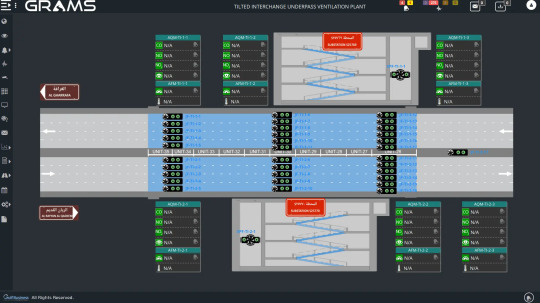
#Top PLC & SCADA Automation in Doha#Operation & Maintenance Services in Qatar#Access Control System Qatar#Building Security Qatar#Turnstile System Qatar#Road Surveys
0 notes
Text
biometric access control system installation
biometric access control system in Abu Dhabi
Biometric Access Control System in Sharjah
Biometric Access Control System in Sharjah
Biometric Access Control Systems in UAE
access control system with facial recognition Software
#Best Access Control Systems#access control supplier abu dhabi#access control system supplier in Saudi Arabia#access control system supplier in Riyadh#access control system supplier in Qatar#access control system supplier in Alain#access control system supplier Bur Dubai#access control system supplier in Sharjah#access control suppliers#access control system#biometric access control system dubai#biometric access control system#biometric access control system bur dubai#biometric access control system saudi arabia#door access control system supplier in dubai#biometric access control system installation in sharjah#biometric entry system UAE#biometric entry system in Sharjah#biometric access control installation in UAE#biometric access control installation in Sharjah#biometric access control installation in alain#biometric access control installation in bur dubai
0 notes
Text
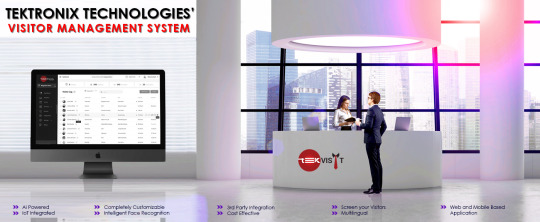
visitor management system for schools
best visitor management system for schools
visitor management system with ai integrated
youtube
Visitor Registration Systems
School Visitor Management Systems
Streamlining Security: The Future of Visitor Management with Facial Recognition
In an era where security concerns are paramount, traditional methods of visitor management are being rapidly replaced by innovative technological solutions. One such solution that is gaining traction across various sectors is the implementation of facial recognition in visitor management systems. Let’s delve into how this technology is revolutionizing the way we manage visitors.
#Visitor Management sytsem in uae#visitor registration sytsem in uae#visitor access control system in alain#visitor registration sytsems in qatar#visitor registration sytsem alain#visitor management system in alain#visitor access control system abu dhabi#visitor access control system riyadh#visitor access control system riyadh saudi#visitor management system riaydh saudi#visitor entrance system saudi arabia#visitor entrance system in saudi arabia#visitor access control system in sharjah#schoolpass visitor management uae#schoolpass visitor management abu dhabi#schoolpass visitor management in alain#schoolpass visitor management oman#schoolpass visitor management qatar#schoolpass visitor management in sharjah#schoolpass visitor management in ajman#visitor management sytsem for schools#visitor management system for university#visitor registration system for schools#visitor registration system for buildings#visitor managemen sytsem for airport#visitor managemen system airports#visitor reg#Youtube
0 notes
Text
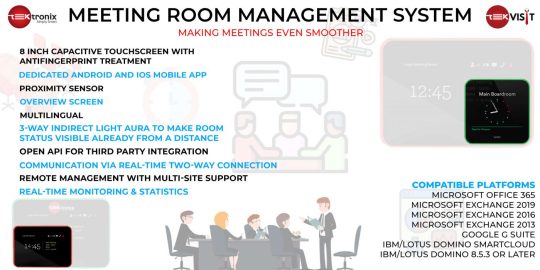







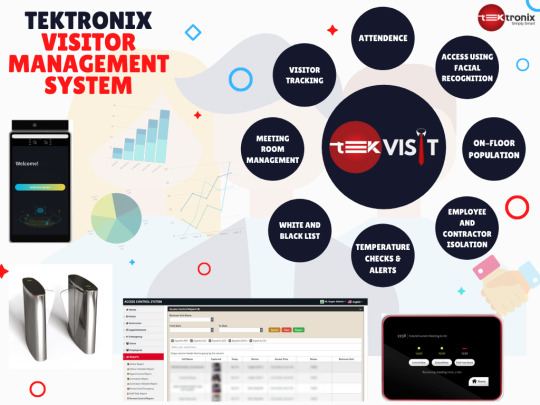

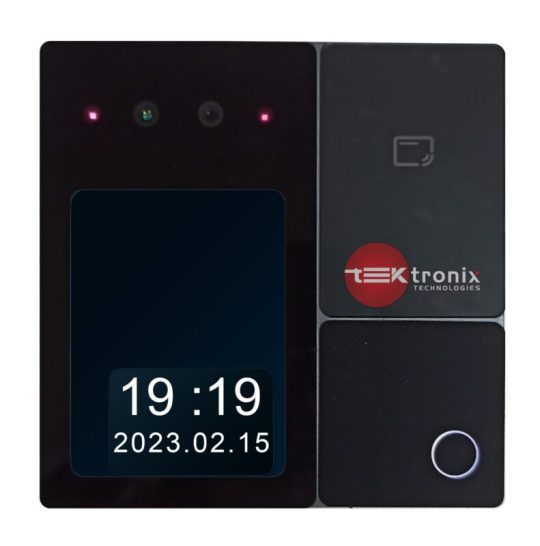
#access control system#access control system dubai#access control system Abu Dhabi#access control system supplier#access control system supplier Dubai#access control system supplier Abu Dhabi#access control system suppliers in uae#access control system suppliers in qatar#door access control system#door access control system Dubai#door access control system Abu Dhabi#door access control system UAE#biometric access control system dubai#biometric access control system Abu Dhabi#biometric access control system Sharjah#biometric access control system Ajman#biometric access control system#access control system solutions#access control system solutions Dubai#access control system solutions Abu Dhabi#access control system solutions UAE
0 notes
Text
Best ERP Software Company in Qatar: Empowering Businesses with Smart Solutions
Introduction
As Qatar accelerates its journey toward digital transformation and economic diversification under its National Vision 2030, more businesses are investing in technologies that drive operational efficiency. One of the most essential tools in this transformation is Enterprise Resource Planning (ERP) software.
Choosing the best ERP software company in Qatar is a critical step for organizations aiming to integrate business functions, reduce manual effort, and scale strategically. From manufacturing and retail to construction and logistics, ERP solutions are helping Qatari businesses improve transparency, compliance, and productivity.
💼 Why ERP Software is Essential for Qatari Businesses
In a competitive market like Qatar, businesses must be agile and data-driven. ERP software offers:
Centralized business management
Real-time reporting and analytics
VAT-compliant financial processing
Cloud-based operations and remote access
Integration with CRM, HR, inventory, and more
From small businesses in Doha to large enterprises across Qatar, ERP systems help companies streamline operations and stay compliant with local regulations.
🏆 Top ERP Solutions Used in Qatar
1. Odoo ERP
Best for: SMEs and fast-growing enterprises
Key Features: Modular, open-source, customizable, VAT-ready
Popular Modules: Accounting, CRM, Inventory, Sales, HR, Manufacturing
Advantage: Cost-effective and scalable, with local support from Odoo partners in Qatar
2. SAP Business One
Best for: Large corporations and complex operations
Strengths: Robust financials, supply chain management, business intelligence
3. Microsoft Dynamics 365
Best for: Businesses already using the Microsoft ecosystem
Strengths: Cloud-based, AI-driven insights, Office 365 integration
4. Oracle NetSuite
Best for: Multinational businesses with multiple locations
Strengths: Unified cloud ERP with strong reporting and automation tools
🔍 How to Choose the Best ERP Software Company in Qatar
When selecting an ERP provider in Qatar, look for:
Proven experience in local and regional markets
Expertise in your industry (retail, logistics, real estate, etc.)
Knowledge of Qatar’s tax laws and compliance needs
Scalable solutions that grow with your business
Post-implementation support and training
🚀 Banibro IT Solution – Your Trusted ERP Partner in Qatar
As a top-tier ERP implementation partner, Banibro IT Solution specializes in delivering robust Odoo ERP solutions to businesses in Qatar. Our expert team helps organizations simplify operations, reduce manual work, and gain complete control over their workflows.
✅ What We Offer:
Odoo ERP implementation & support
Custom module development
Odoo accounting and HRMS
ERP for manufacturing, real estate, retail & logistics
Seamless migration and integration with legacy systems
We align your ERP system with Qatar’s business regulations, including VAT compliance and Arabic language support.
📞 Let’s Build Your Digital Future
Looking for the best ERP software company in Qatar? Partner with Banibro IT Solution to transform your business with Odoo ERP.👉 Visit: www.banibro.com 📧 Email: [email protected]
#erp software#best erp software#odoo customization#best erp software in uae#erp software uae#odooerp
0 notes